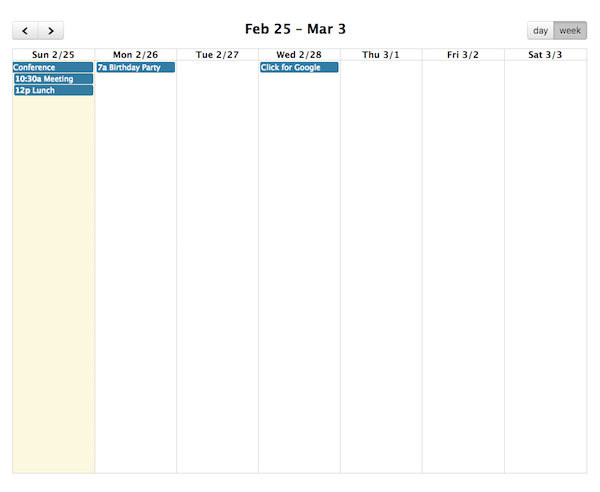Docs DayGrid View
A DayGrid view is a view with one or more columns, each representing a day. The pre-configured DayGrid views are dayGridDay and dayGridWeek. They can be initialized in an ES6 setup like so:
import { Calendar } from '@fullcalendar/core';
import dayGridPlugin from '@fullcalendar/daygrid';
...
let calendar = new Calendar(calendarEl, {
plugins: [ dayGridPlugin ],
defaultView: 'dayGridWeek'
});
...
Then you’ll need to ensure the correct stylesheets are loaded:
<link href='node_modules/@fullcalendar/core/main.css' rel='stylesheet' />
<link href='node_modules/@fullcalendar/daygrid/main.css' rel='stylesheet' />
Or you can choose to initialized DayGrid view entirely with script tags:
<link href='fullcalendar/core/main.css' rel='stylesheet' />
<link href='fullcalendar/daygrid/main.css' rel='stylesheet' />
<script src='fullcalendar/core/main.js'></script>
<script src='fullcalendar/daygrid/main.js'></script>
<script>
...
var calendar = new FullCalendar.Calendar(calendarEl, {
plugins: [ 'dayGrid' ],
defaultView: 'dayGridWeek'
});
...
</script>
If you’d like a different interval of time, you can create a custom view with type 'dayGrid'.
There are numerous other options throughout the docs that affect the display of DayGrid view, such as the date/time display options and locale-related options.
